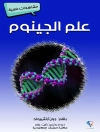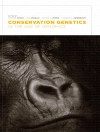At the heart of ‘Sex-linked Inheritance in Drosophila’, edited by the pioneering geneticists Thomas Hunt Morgan and Calvin B. Bridges, lies a rich exploration of the early twentieth-century breakthroughs in the field of genetics, specifically through the lens of Drosophila melanogaster (fruit fly) research. This collection unites a spectrum of experimental studies, reflective essays, and theoretical debates that mark critical moments in the understanding of sex-linked inheritance. The diversity in literary styles—from empirical research reports to speculative scientific essays—mirrors the complexity and multifaceted nature of genetic inheritance itself, offering readers a comprehensive view of the subject’s developmental trajectory and its far-reaching implications in biology. The contributors, Morgan and Bridges, are not merely editors but pioneers who stood at the forefront of genetics. Their work laid the groundwork for what would become the modern understanding of genetic science. Situated within the larger historical and cultural movements of early genetic research, their collective contributions underline the anthology’s thematic unity—showcasing the collaborative effort required to advance scientific discovery. The studies included trace the evolution of genetic thought, from speculation to scientifically verified knowledge, highlighting the significance of Drosophila in genetics. ‘Read ‘Sex-linked Inheritance in Drosophila’ to embark on a fascinating journey through the foundational studies of genetics, presented by its earliest trailblazers. This anthology not only serves as an invaluable educational resource but also offers a panoramic view of the pioneering research and collaborative spirit that define the field. Readers, from students to scholars, will appreciate the breadth of insights and the dialogues fostered between the works of Morgan and Bridges—a testament to the anthology’s enduring relevance and its capacity to enlighten and inspire generations of geneticists and biologists alike.
Yazar hakkında
Thomas Hunt Morgan (1866–1945) was a towering figure in the field of genetics whose contributions not only embedded the science deeply into the heart of modern biology but also earned him the Nobel Prize in Physiology or Medicine in 1933. Morgan’s foray into the world of chromosomes and heredity culminated in his groundbreaking research detailed in ‘Sex-linked Inheritance in Drosophila’ (1914), a book wherein he revealed the mechanics behind the passing of genes through sex chromosomes using fruit flies (Drosophila melanogaster) as a model organism. Utilizing Drosophila, Morgan demonstrated that the X chromosome carried factors essential for the inheritance of certain traits, hence pioneering the field of chromosomal genetics. A professor at Columbia University and later at Caltech, Morgan’s pedagogical methods accentuated the observational and experimental possibilities of genetics. Under his tutelage, a generation of geneticists was shaped, earning his laboratory the moniker ‘the Fly Room.’ Morgan’s literary style was expository and rich with detail, echoing his meticulous approach to experiment and observation. His works communicated complex ideas with clarity and precision, fostering understanding of genetic principles among scientists and students alike. His broader contributions to biology span several other seminal writings, but ‘Sex-linked Inheritance in Drosophila’ remains a touchstone of his literary and scientific legacy.












